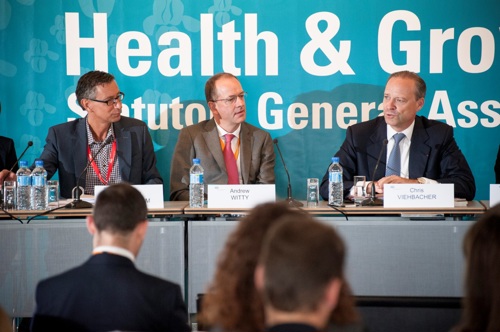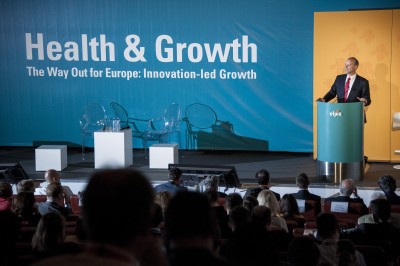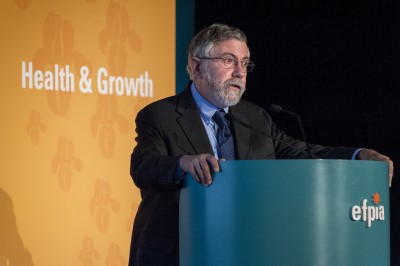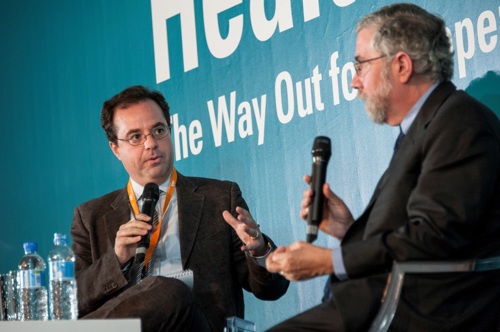The way out for Europe: Why optimism matters
27.06.13
“I’m in a slightly optimistic mood this morning,” Nobel prize-winning economist Paul Krugman noted when discussing the current state of Europe and his four possible “How does it end?” scenarios to the Euro crisis: Germany as locomotive, muddling through (in Krugman’s words, “the official policy of Europe”), radicalization, or the slightly less optimistic doom loop. As the discussion between Krugman and FT Brussels Bureau Chief Peter Spiegel progressed, the question of optimism came up again. Taking the floor once the panel opened to questions, my colleague Jane Griffiths, Company Group Chairman of Johnson & Johnson, questioned this optimism – what value might it have?
A fair question. Sure, optimism alone can’t turn around economies. It can’t generate growth or create favourable trade balances. Excessive optimism can also come shortly before a big crash – and even be a factor in crashes, as we’ve seen. Though admitting the limitations of optimism, Krugman maintained its value: “Optimism won’t make the structural problems go away… But I believe right now it would be helpful.”
I can only agree. What use does pessimism have in the current environment? I’ve pushed for a viewpoint that goes beyond the too-common (and easy) doom and gloom today time and again – for instance, in the pessimistic backlash we saw in a setback to HIV research earlier this Spring.
But today’s discussion was less about medical research than it was about Europe’s economic future. It pushed many of those present from the pharmaceutical industry, myself included, to think beyond the boundaries of the industry and healthcare – to consider the bigger picture, of how our industry might be able to factor into European growth, not just European health. I know we can make a real impact.
Following the discussion between Paul Krugman and Peter Spiegel, the discussion continued with an expert panel including Joaquim Oliveira Martins, Senior Economist OECD, Professor Fabio Pammolli, IMT Lucca Institute of Advanced Studies and CeRM Foundation; Fredrik Erixon of the European Centre for International Political Economy (ECIPE); Nicole Bedlington of the European Patients Forum; and Professor Meir Pugatch of Haifa University and the Pugatch Consilium. At one point in the discussion that followed, my Swedish compatriot Mr. Erixon made a great point: “The power of irrational ideas is sometimes irresistible.” Indeed seemingly irrational ideas are often the big wins.
This is the key, as we face the challenges ahead, for both Europe and the pharmaceutical industry. Sometimes an idea that seems complicated, irrational, daunting gives us the best outcome. The upcoming cross-border healthcare directive is one interesting example. Many people have already pointed to the complications of implementing such a directive. But it also holds great possibilities – what entrepreneurial ideas and innovative solutions might we see as Europe seeks to improve healthcare options for Europeans? This is what we need to think about and focus on. We must meet the challenges of this crisis head on – and I, for one, I remain an optimist.




(photo credits : Lander Loeckx)
